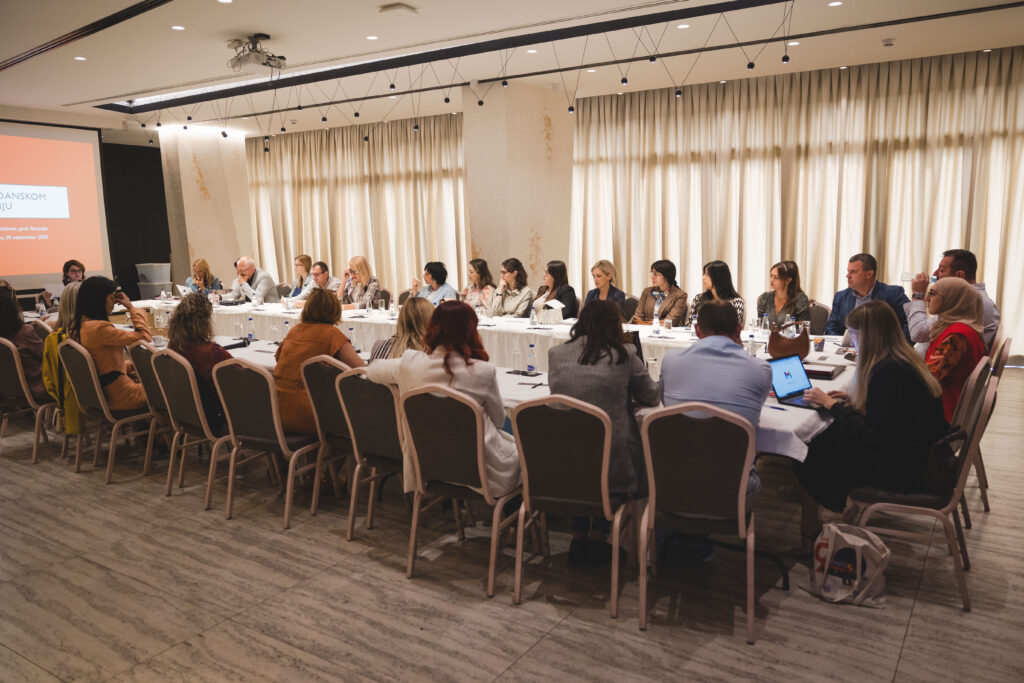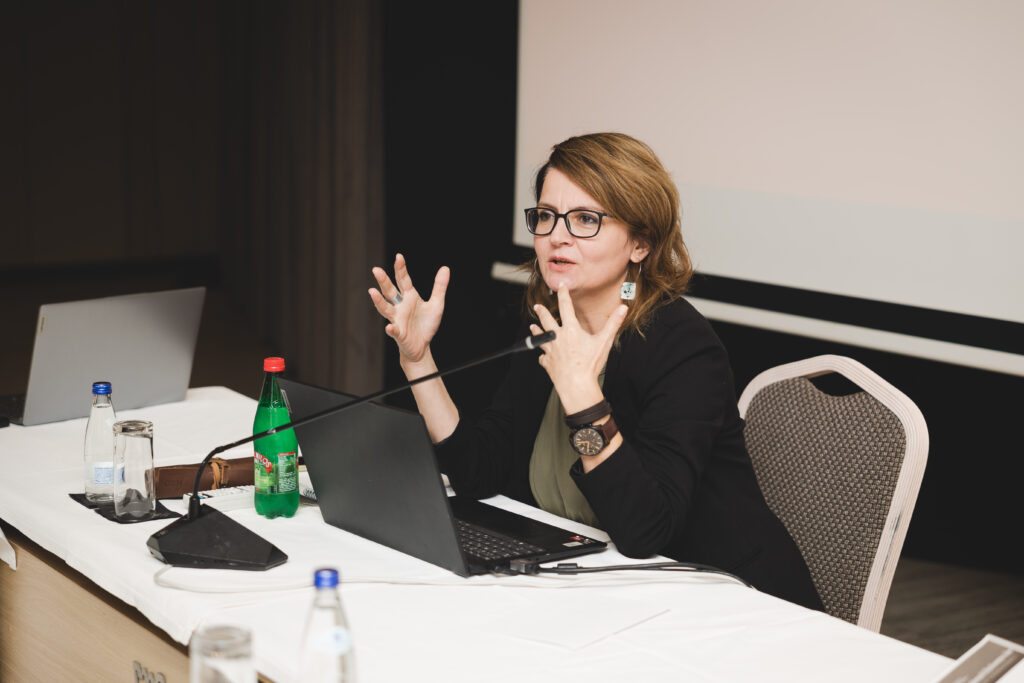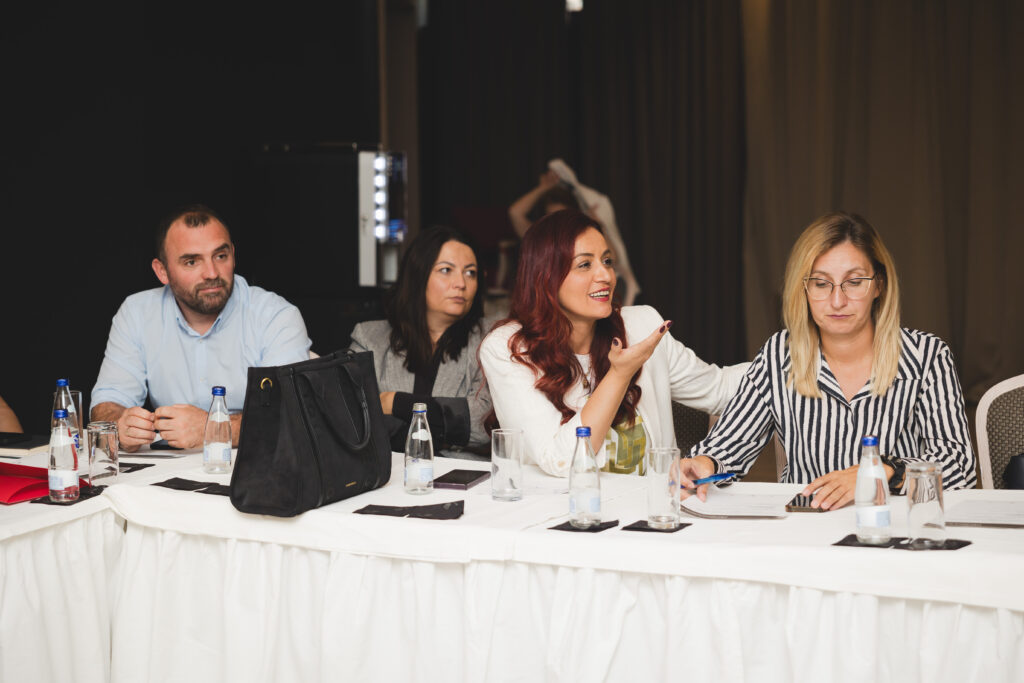The introduction of civic education as a mandatory subject in all schools provides young people with the opportunity to acquire knowledge, skills, and values that enable them to participate actively, responsibly, and democratically in their communities, was the key message from the workshop organized today in Podgorica by the Centre for Civic Education (CCE), in partnership with the Human Rights Action (HRA) and the Centre for Women’s and Peace Education ANIMA.
The workshop gathered nearly 40 participants, including school principals from across Montenegro, psychological-pedagogical services, as well as teachers of Civic Education and related subjects.

The focus was on best teaching practices, and recommendations were created to improve both the quality and the institutional positioning of Civic Education as a subject.
Along with earlier recommendations developed at the round table with civil sector, interviews with academic communityand focus groups with parents, as well as through a series of workshop with students of primary and secondary schools from different parts of Montenegro, these recommendations will also be included in the action document on civic education which will be presented to policy-makers.
The workshop moderator, philosophy professor Paula Petričević, emphasized that civic education in all Montenegrin schools is essential if we want children and young people to become aware of and critically reflect on their belonging to different communities and groups, to develop understanding and respect for diversity, and to preserve and further advance the level of rights and freedoms already achieved. “If we do not want to be governed by emotions and herd instincts, if we want to make conscious and informed decisions about our own lives and the life of the community, we must know how, on what grounds, with whom, and in what way. That is what civic education can offer not only to children and young people but to society as a whole,” she added.

“Civic education cannot have the same significance and impact if it is only an elective subject. When it is optional, only a portion of the students get the opportunity to develop the knowledge and skills needed to understand society, institutions and their rights and obligations. In this way, young people are placed in an unequal position – while some acquire competences for active participation in democratic processes, others are deprived,” stated Denisa Huremović, sociology teacher at the Secondary School of Civil Engineering and Geodesy “Eng. Marko Radević” in Podgorica, who was one of the participants.
“Civic education at this moment is in fact education for change and for critical thinking,” said Ervina Dabižinovićfrom ANIMA – Centre for Women’s and Peace Education.

The workshop is part of the project “Enhancing Education for Civic and Human Rights: Educational Reforms for a Stronger Democracy”, within the programme “Strengthening Citizens’ Trust in Institutions and Building Resilient Communities,” led by UNDP, UNICEF, and UNESCO, in cooperation with the Government of Montenegro. The project is funded by the UN Peacebuilding Fund.
Sara Čabarkapa, Active Citizenship Programme Coordinator
